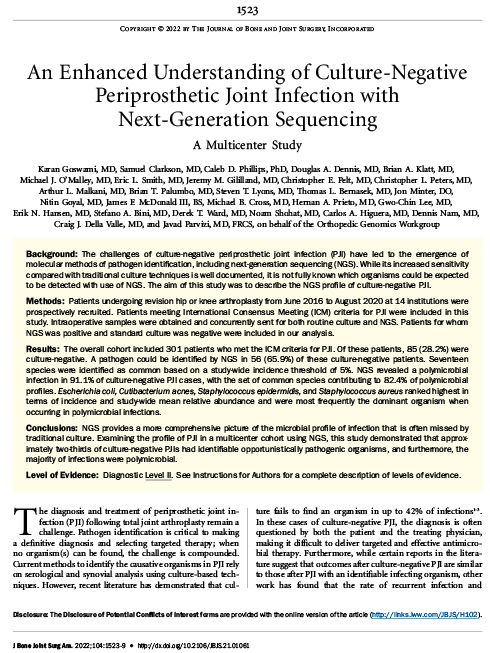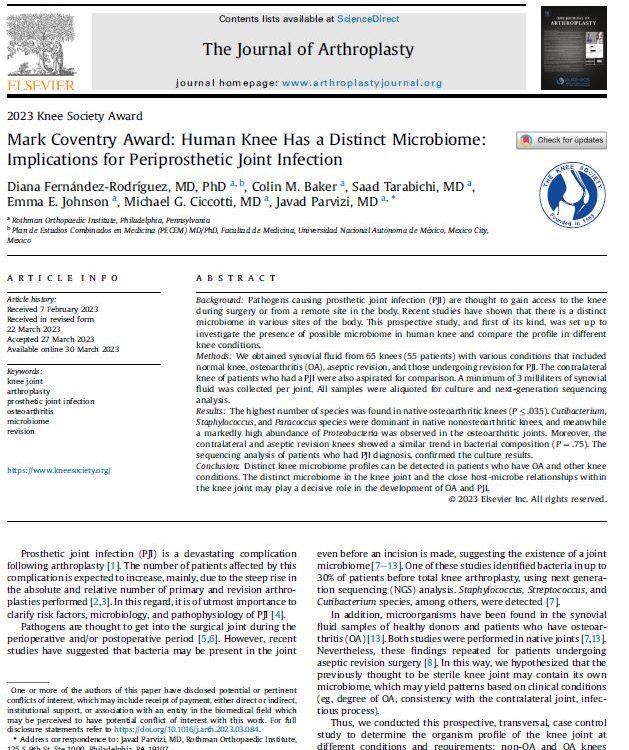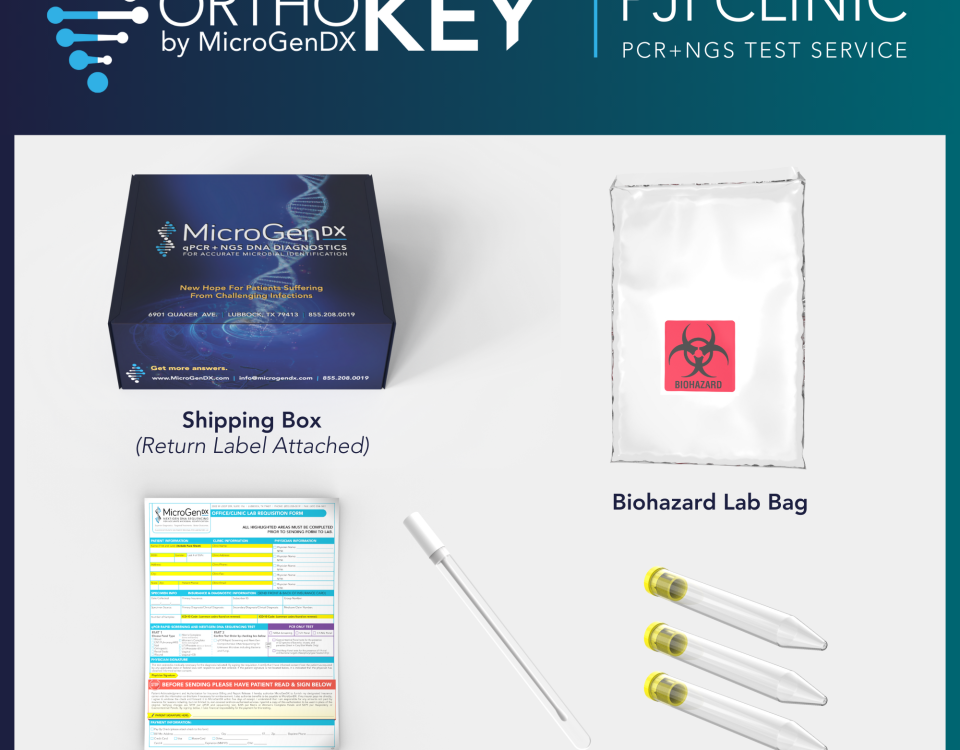51 results found for: Periprosthetic joint infection
Largest study of its kind evaluates present and future role of NGS in orthopedic infections.…
THE JOURNAL OF BONE AND JOINT SURGERY, INCORPORATED 2022 Sep 7;104(17):1523-1529 Study: NGS provides a more comprehensive picture of the microbial profile of infection that is often missed by traditional culture. Examining the profile of PJI in a multicenter cohort using NGS, this study demonstrated that approximately two-thirds of culture-negative PJIs had identifiable opportunistically pathogenic organisms, and furthermore, the majority of infections were polymicrobial. Read Study…
The Journal of Arthroplasty 38 (2023) S2-S6 Study: This prospective study aimed to investigate the presence of a possible microbiome in the human knee and compare the microbial profiles in different knee conditions. Synovial fluid samples were collected from 65 knees with various conditions, including normal knees, osteoarthritis, aseptic revision, and prosthetic joint infection (PJI). The results revealed that there is a distinct knee microbiome, with different microbial compositions observed in different knee conditions. These findings suggest that the knee microbiome may have an impact on the development of osteoarthritis and PJI. Read Study…




